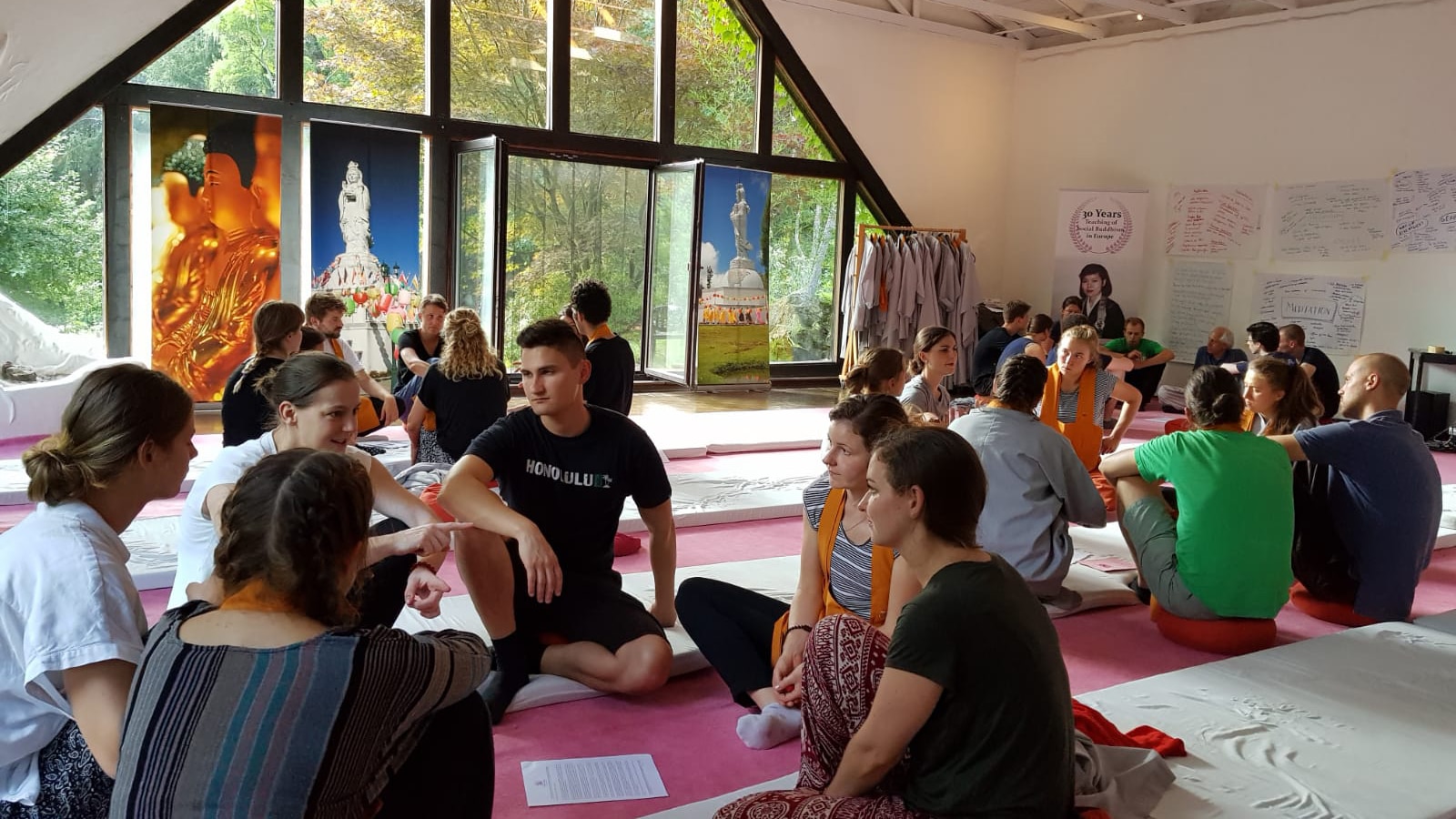How to find the meditation center that best fits your needs in 5 simple steps.
Do you know the feeling?
You’ve tried Meditation apps you’ve listened to guided Meditations on YouTube but are looking for something more? Maybe you’d like a community to share your experiences with and a more customized guidance on how to meditate. Or you are looking for philosophical teachings and inspirational texts to develop your practice. But how do you go about finding what’s right for you?
Finding the right spiritual practice and teachings is a very personal matter. Though meditation has become popular, there is a wide variety of very different people that offer meditation practices. Running from secular to esoteric or religious approaches.
How do you figure out what’s best for you? And how do you avoid potentially uncomfortable or awkward missteps? Meeting the wrong kind of people or trying a practice that makes you feel weird or pressured can be disheartening. In an app you can simply change the class with a swipe of your finger but when you are testing real places you need to be certain of what you’re doing.
In this article we want to provide you with 5 steps to help determine what place is a good fit for you.
Step 1: Ask yourself why?
Before you start your meditation center search, it’s a good idea to get clear on what you are looking for. How would you know if you met the right community or found the right space? A helpful exercise can be to take a moment to jot down some of the reasons you want to meditate and further develop your meditation practice.
Here are some questions to get you started:
- Are you looking for stress relief or relaxation – something to create balance in your life?
- Do you want to become more focused at work?
- Is there a situation in your life that needs clarity?
- Are you looking for philosophical inspiration or truth?
Step 2: Research the origins
Once you know what you want you can try and find the right fit. Often meditation centers like ours are affiliated with a greater organization or direction of practice. Check out who is behind the local center and teachers you are interested in. Even most secular groups have their origins with traditional schools of meditation. It can be interesting and revealing to know the background you are entrusting yourself to.
Look up the organization. Check what gives them credibility. Here are some aspects you may want to consider:
- Are there any texts that can help you better understand this particular background? A Biography or Teachings collected in books or articles, for instance.
- What type of school / center is it?
- How old is the tradition? Where does it originate from?
- Who are the teachers, who is the master that developed the techniques that are practiced there? What was their purpose for using or creating meditation practices?
- Does this match with why you want to meditate?
Once you know what structure or organization is affiliated with the place you want to see you’ll have a better sense of what to expect.
Step 3: Call beforehand
Once you’ve done your research and selected a few places you want to see, another way to get more information beforehand is to ask some basic questions up front. Give them a call, here are some questions you might want to ask:
- Is there an intro session?
- Are there any prerequisites?
- What do I need to bring? Wear?
- How do I get there?
- What kind of cushions/seating for meditation do you offer?
These are obvious questions, but a short conversation may already tell you a lot about what they are offering and the people there. Are they well organized? Were they friendly? Did you feel positive chemistry? Did they ask anything about you? Does their offering match what you are looking for?
Personalized contact can provide you with some valuable information, but even more so a brief feeling of who you are planning to visit.
Step 4: Visit with an open mind
No matter how much you can read online, in the end you’ll only know if a place is right for you if you give it a try.
When visiting a place, make sure you’re on time, maybe even a little early. Apart from being respectful, that’ll give you time to calmly experience your visit and perceive more of what’s going on.
Be open and curious. Beyond talking to the person leading the meditation, ask participants how they came to this particular practice. Why are they here? And what do they enjoy about being part of this community or space?
After visiting the place when you have a moment to gather your thoughts take a moment to check what you experienced. Here are some questions than can help you evaluate your visit:
- Did you enjoy the practice? Was it relaxing or inspiring? Did you feel comfortable?
- How did the person leading the meditation and intro session make you feel?
- How did the other participants react to you? Were they respectful of your experiences and beliefs?
- Did you feel that it’s a place where you can grow and learn new things about yourself?
Step 5: Give it a real try
If a place fits your criteria, you feel comfortable, inspired, or curious, the people are to your liking, we recommend doing a proper trial run. Try the center and their practice for a couple of weeks.
In most cases, you won’t really be able to assess what any practice does for you if you don’t try it for a couple of times. Keep in mind you can still leave anytime and restart the process somewhere else. But trying the practice for about a month will provide you with a solid basis to decide if this place is right for you in the long run.
During your selected timeframe go there regularly. Get to know the people, do the recommended practices at home as much as you can and try to keep an open mind. After your set timeframe sit down and evaluate what you learned.
Look at your reasons for wanting to meditate. Is this place providing you with what you’re looking for? Does it challenge you positively? Do you trust the teacher and participants? Does it feel like a safe environment for you mentally, spiritually?
Wherever you choose to practice meditation, we hope this guide helps you make the best decision for your needs.
Thank you for taking the time to visit our site and check out our blog. The Yun Hwa Sangha of World Social Buddhism has over 40 centers in various European cities. Find a location near you here.







